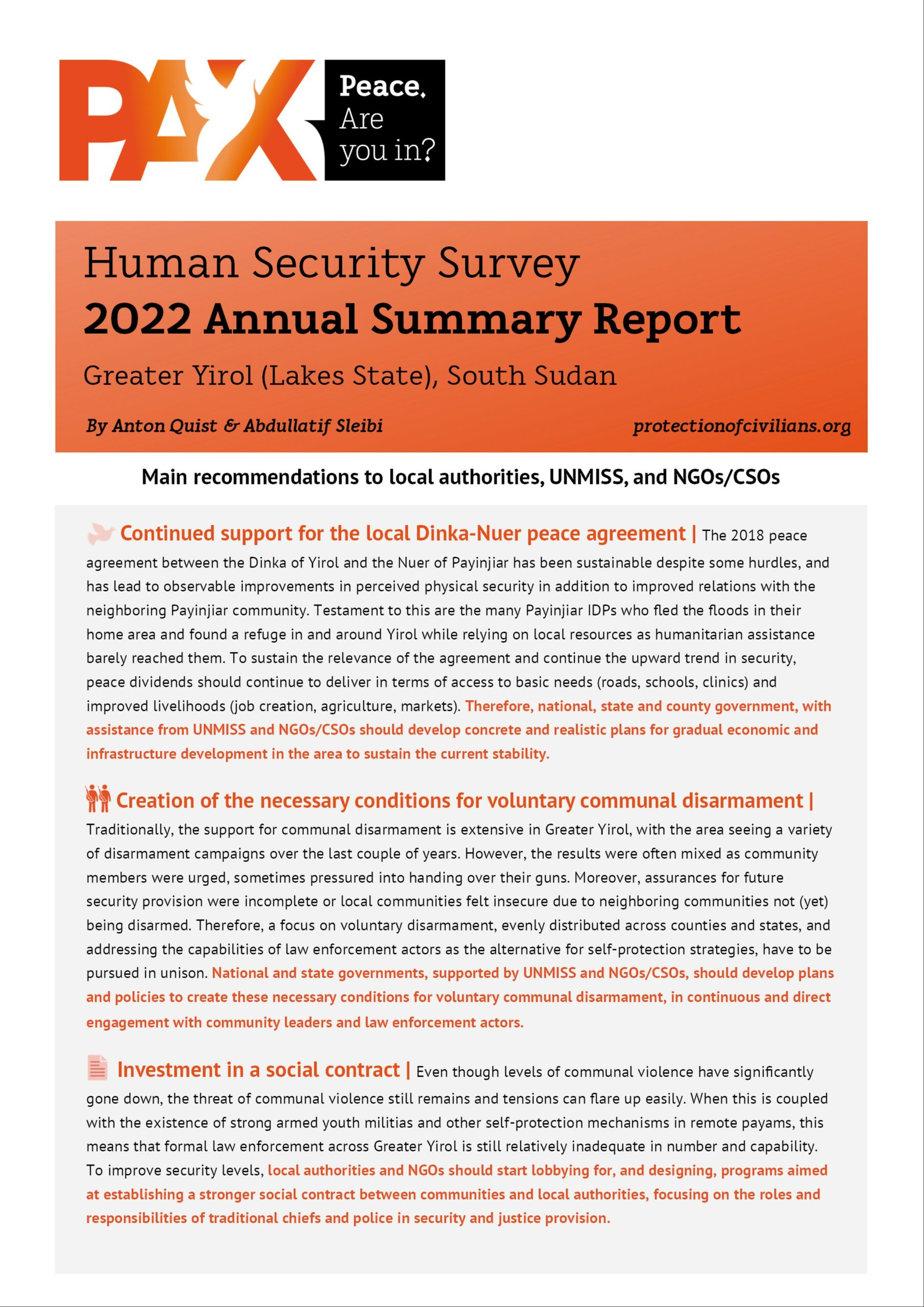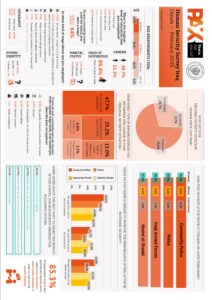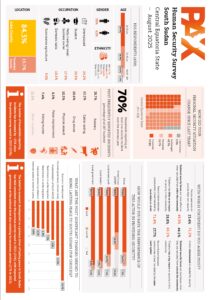HSS 2022: Summary findings from Greater Yirol (Lakes State), South Sudan
This report reflects on the 2022 Human Security Survey (HSS) outcomes of Yirol West, Yirol East and Awerial Counties in Greater Yirol (Lakes State), South Sudan, which took place over the course of three weeks in August 2022. This report summarizes the community perceptions and security dynamics observed during the 5th round of data collection in the area since 2017. This survey therefore reflects on the security situation in 2021- 2022 (until August).
Main recommendations to local authorities, UNMISS, and NGOs/CSOs
- Continued support for the local Dinka-Nuer peace agreement | The 2018 peace agreement between the Dinka of Yirol and the Nuer of Payinjiar has been sustainable despite some hurdles, and has lead to observable improvements in perceived physical security in addition to improved relations with the neighboring Payinjiar community. Testament to this are the many Payinjiar IDPs who fled the floods in their home area and found a refuge in and around Yirol while relying on local resources as humanitarian assistance barely reached them. To sustain the relevance of the agreement and continue the upward trend in security, peace dividends should continue to deliver in terms of access to basic needs (roads, schools, clinics) and improved livelihoods (job creation, agriculture, markets). Therefore, national, state and county government, with assistance from UNMISS and NGOs/CSOs should develop concrete and realistic plans for gradual economic and infrastructure development in the area to sustain the current stability.
- Creation of the necessary conditions for voluntary communal disarmament | Traditionally, the support for communal disarmament is extensive in Greater Yirol, with the area seeing a variety of disarmament campaigns over the last couple of years. However, the results were often mixed as community members were urged, sometimes pressured into handing over their guns. Moreover, assurances for future security provision were incomplete or local communities felt insecure due to neighboring communities not (yet) being disarmed. Therefore, a focus on voluntary disarmament, evenly distributed across counties and states, and addressing the capabilities of law enforcement actors as the alternative for self-protection strategies, have to be pursued in unison. National and state governments, supported by UNMISS and NGOs/CSOs, should develop plans and policies to create these necessary conditions for voluntary communal disarmament, in continuous and direct engagement with community leaders and law enforcement actors.
- Investment in a social contract | Even though levels of communal violence have significantly gone down, the threat of communal violence still remains and tensions can flare up easily. When this is coupled with the existence of strong armed youth militias and other self-protection mechanisms in remote payams, this means that formal law enforcement across Greater Yirol is still relatively inadequate in number and capability. To improve security levels, local authorities and NGOs should start lobbying for, and designing, programs aimed at establishing a stronger social contract between communities and local authorities, focusing on the roles and responsibilities of traditional chiefs and police in security and justice provision.
About this report
Date of publication:
Oct 01, 2022
Author:
Anton Quist & Abdullatif Sleibi
Publisher:
PAX Protection of Civilians
Period:
2021-2022

HSS 2022: Summary findings from Greater Yirol (Lakes State), South Sudan
Oct 01, 2022, Anton Quist & Abdullatif Sleibi


